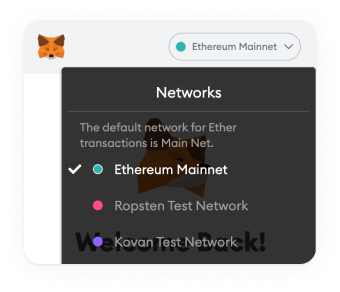Switzerland's largest online retailer, Digitec Galaxus, has started accepting payments in 10 cryptocurrencies including XRP.
Ripple said that the three major remittance companies will use Ripple in 2018.
The market value of Ripple (ripple) surpassed Ethereum in one fell swoop, becoming the second largest cryptocurrency.
Ripple's blockchain-style consensus platform has been successfully tested in Japan.
The Gates Foundation announced the launch of Mojaloop, an open source software based on Ripple technology.
Blockchain firm R3 sued Ripple until the two settled in September 2018. (In September 2016, the two parties signed a cooperation agreement)
The Bank of England tests Ripple's cross-border payment protocol.
Ripple can unlock billions of dollars around the world and will eventually change traditional settlement systems.
For the first time, Ripple surpassed Ethereum and officially replaced Ethereum as the world's second largest cryptocurrency with a total market value of $8.5 billion.
47 Japanese banks have completed pilot funds transfers using Ripple technology.
Abu Dhabi Bank partners with Ripple for cross-border payment services.
Ripple and R3 cross-border payment experiments have made breakthroughs.
Ripple has raised $55 million in funding from Japanese online retail stock brokerage SBI Holdings (8473 JP), with SBI acquiring a 10.5% stake in Ripple. Afterwards, SBI and Ripple formed a joint venture, SBI Ripple Asia, with SBI owning 60% and Ripple 40%.
Obtained $55 million in Series B financing. Meanwhile, Bank of America, Spain's Banco Santander and the Royal Bank of Canada announced they will jointly create a global blockchain payments network using digital payments firm Ripple's distributed ledger technology.
Ripple released the reference implementation of open source ILP; Microsoft Azure cloud platform adopts Ripple and ILP.
The company's simplified name is Ripple.
Ripple received a $4 million strategic investment from Santander Bank.
The "Euro Banking Association" meeting uniquely designated XRP as a financial currency among all digital currencies. At the same time, Ripple received $28 million in Series A financing.
U.S. regulators have fined Ripple Labs $700,000 for violating the Bank Secrecy Act by selling XRP in an unauthorized manner.
The Ripple white paper was released; German Fedor Bank, American CBW Bank, and Cross River Bank successively announced access to the Ripple protocol to achieve peer-to-peer financial communication; in April, Ripple began trading.
Ripple began to implement the "balance freezing" function (online in August 2014). This allows Ripple gateways to freeze or even confiscate users' cryptocurrencies without a valid signature.
OpenCoin rebrands to Ripple Labs.
Jed McCaleb ended his career on the Ripple project and was replaced by Stefan Thomas as technical director. McCaleb later founded Stellar in 2014.
OpenCoin received $1.5 million in funding from Google Ventures, Andreessen Horowitz, IDG Capital Partners, FF Angel, Lightspeed Venture Partners, Bitcoin Opportunity Fund, and Vast Ventures.
Ripple currency - XRP was launched as the base currency of the Ripple network. At the same time, the new version of the Ripple network was introduced into the Gateway (Gateway) system.
Ripple launched the cryptocurrency XRP (Ripple Coin) in January 2013, and the company capped the supply of XRP at 100 billion.
Jesse Powell, founder and CEO of Kraken exchange (launched in 2011), participated in Ripple’s first seed round, with a total investment of about $200,000.
McCaleb hired Chris Larson, who remains executive chairman and is described by the website as a Ripple co-founder. This marked the beginning of the OpenCoin era.
Bitcoin pioneer Jed McCaleb has joined the Ripple project.
Ryan Fugger created RipplePay, the core idea is to build a peer-to-peer payment network that can replace the banking financial system.
See More






























































